Whether it was his steady focus on meeting residents’ most basic needs or his ability to connect with prison inmates and high school students, John Kelly was known throughout his life for a selfless dedication to his community and propensity to bring others into his work.
Perhaps best known for growing Samaritan House from a fledging nonprofit into a full-service organization offering food, clothing and medical services, Kelly died May 20 at 90 years old, leaving those who knew him with distinct memories of his strong moral compass and sense of humor as he fulfilled roles as a priest, teacher and friend to those marginalized from society.
Also dedicated to expanding Samaritan House’s reach into the San Mateo County community, San Mateo resident Dr. William Schwartz died earlier this month. Schwartz is credited with starting the San Mateo-based nonprofit’s Free Clinics with Dr. Walter Gaines to offer free health care to uninsured residents.
Having known Kelly for some 42 years, longtime friend and former Foster City mayor Pam Frisella remembered well his ability to cultivate relationships in the community and his focus on ensuring everyone has an equal chance to live in San Mateo County. Starting with a vow of poverty when he joined the priesthood at age 13 and extending into his later years well after he left the priesthood in 1979, Kelly’s simple, no-frills life set an example for many and attracted others to join him in his work at Samaritan House, said Frisella.
“He just was very, very respected and loved by everybody because he never had an agenda to help anybody except those in need,” she said.
Frisella said she met Kelly in 1977 when he presided over the funeral of her late husband, who Kelly had taught when her husband was a student at Serra High School in San Mateo. She said she bonded with Kelly, who was then a pastor at St. Mark’s Church in Belmont, over the tragedy, and Kelly baptized her second son two months after her husband’s death, eventually becoming a fixture in the family.
Some two years after they met, Kelly left the priesthood out of frustrations with the bureaucracy of the Catholic Church, said Frisella, who noted he spent a few years doing part-time work before he and a few others in the community started Samaritan House. Frisella said she joined Kelly in many of his endeavors, including working at Samaritan House for five years, and saw him engage with the community to raise funds for the nonprofit as well as recruit volunteers to carry out its food, clothing and medical programs.
Samaritan House
Bart Charlow, Samaritan House’s CEO, said Kelly served as executive director for Samaritan House from 1985 to 1999 and expanded the number of services the nonprofit offers to include an emergency shelter for the homeless, a kids’ clothing drive and a series of programs during the holidays, among others. Charlow described Kelly as a magnet for those who wanted to help others and as someone who showed people who didn’t think they knew how to help how to do good things in the community, noting almost every individual and agency John interacted with remembered him.
Charlow credited Kelly with instilling in the Samaritan House culture a sense that people are at the center of the nonprofit’s work, adding the nonprofit’s employees strive to ensure their services involve face-to-face interactions and a tailored approach.
“He was an incredibly dedicated and giving person,” he said. “He had a very strong feeling for the value of people, no matter where you found them.”
Kitty Lopez, who served as the nonprofit’s executive director from 2002 to 2013, said Kelly’s commitment to sharing what you have with others sent a simple message to the community, one she felt seemed more important today than it ever has. She noted Kelly was well-known by so many in the community as an educator and leader of Samaritan House, and said Kelly always impressed upon her the importance of engaging people in helping each other.
“John always just had a belief of going to the community and asking for help and asking to get people involved,” she said. “I think through that act, it widens the message.”
Recommended for you
Frisella believed Kelly’s experience with leading retreats as a priest may have played a role in his decision to mentor prison inmates at San Quentin State Prison after he finished his work at Samaritan House. In the hopes of connecting with some of the most marginalized members of society, Kelly traveled to the prison two or three times a week to spend time with the inmates, many of whom he stayed in touch with after their release, she said.
Kelly’s nephew Patrick Kelly said he joined his uncle on trips to the prison and saw him listen to, challenge and engage with people on their most human level. He said his uncle never gave up on people, no matter what their circumstances were or what they did previously in their lives. Patrick Kelly remembered his uncle relished taking him and his siblings to do fun activities when he was young, and said his uncle’s dedication to issues of social justice — such as voting and labor rights in the midst of the civil rights movement — was also apparent to him at an early age.
Patrick Kelly said his uncle’s commitment to others was also evident in the many acts of kindness supporting him in his last few months of life, when friends, former coworkers and those whose lives were affected by his work came together to care for him and visit.
“To us, he’s our uncle,” he said. “To others, you could just really see how he’s made a difference in their lives.”
Kelly’s teaching
For Father Joe Bradley, a 1973 Serra graduate, it was Kelly’s teaching that made the biggest impression. Having had Kelly as a teacher for two classes and as a counselor for his four years in high school, Bradley had several opportunities to observe Kelly’s unique teaching approach. He remembered times when Kelly would walk into a classroom with no book or notes and ask his students what Jesus might think of any number of current events, whether it was an execution in another state or the Vietnam War.
Bradley believed Kelly played a role in his decision to become a priest, noting he made religion class feel true to life and found a way to bring his students into an awareness of those less fortunate than them. Now a chaplain for the Serra football program, Bradley said he often thinks about Kelly’s example when he gives homilies or engages with students at football games, noting Kelly was ever-present at Serra sports games.
“The person you saw in the classroom was the same person on the sidelines, was the same person walking around school,” he said. “He was just very real and very humble and he made us think … I always respected him for that.”
Frisella said many individuals who felt Kelly’s generosity supported him in his later years, which allowed him to continue living in San Mateo, near his birthplace of San Francisco. She said he was forever proud he walked across the Golden Gate Bridge the day it opened to the public, and was an avid sports and Jeopardy fan throughout his life.
“He’s just one of the very few people that I’ve known in my life that I would have followed anywhere,” she said.
(650) 344-5200 ext. 106







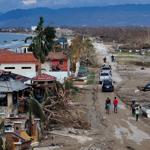





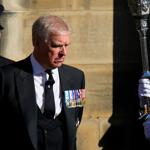


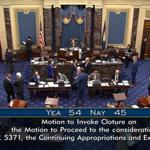
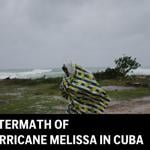



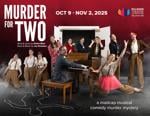









(2) comments
Our community lost a true gentleman and inspiring leader. Rest in peace John.
Did God's work. A great life. We should all aspire to this in life. Respect & condolences.
Welcome to the discussion.
Log In
Keep the discussion civilized. Absolutely NO personal attacks or insults directed toward writers, nor others who make comments.
Keep it clean. Please avoid obscene, vulgar, lewd, racist or sexually-oriented language.
Don't threaten. Threats of harming another person will not be tolerated.
Be truthful. Don't knowingly lie about anyone or anything.
Be proactive. Use the 'Report' link on each comment to let us know of abusive posts.
PLEASE TURN OFF YOUR CAPS LOCK.
Anyone violating these rules will be issued a warning. After the warning, comment privileges can be revoked.